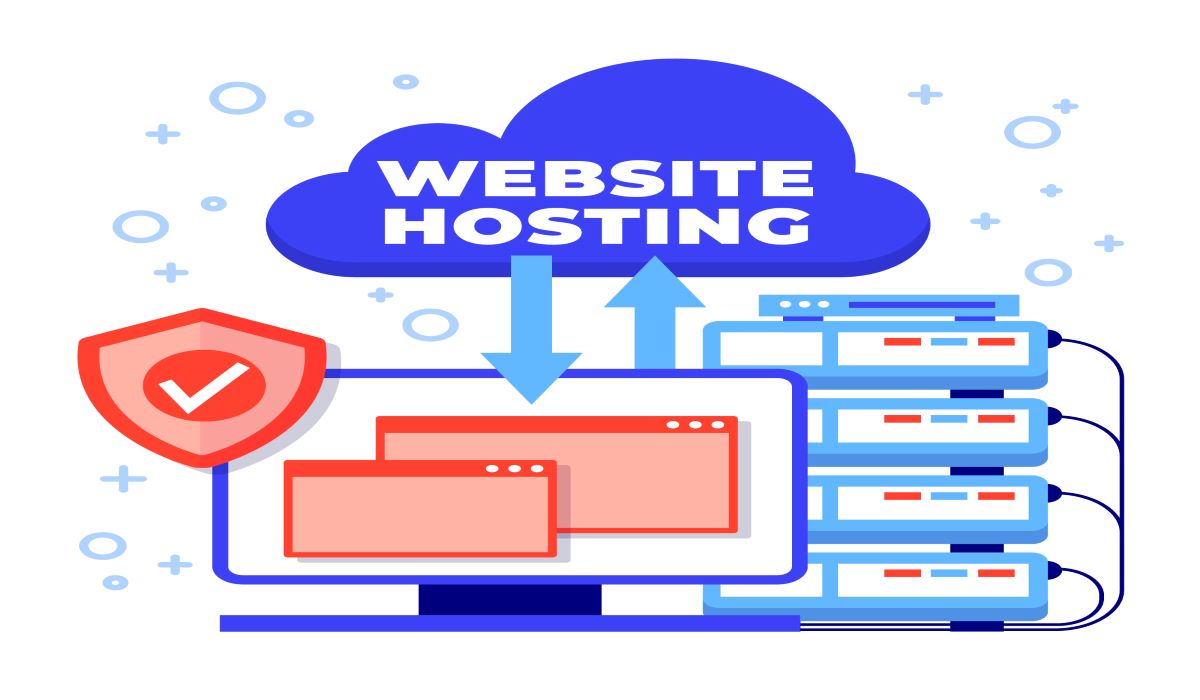A website hosting provider is a company that provides the technology and services needed for a website to be viewed on the internet. They do this by providing server space, bandwidth, and other resources that are required to store and deliver a website to visitors.
When a website is created, the files and content that make up the site need to be stored on a server that is connected to the internet. A hosting provider will rent out space on a server to an individual or organization, so that they can store their website files and make them accessible to the public via the internet.
The hosting provider will also typically provide ancillary services such as domain name registration, email hosting, and technical support, so that customers can have everything they need to run their website in one place.
Website hosting providers are a critical component of the internet infrastructure, as without them, websites would not be accessible to the public.
There are several factors to consider when choosing a hosting provider. Here are some questions to ask and things to consider when making your decision:
- What type of hosting do you need? Different hosting providers offer different types of hosting services, such as shared hosting, VPS hosting, dedicated hosting, and cloud hosting. Determine what type of hosting is most suitable for your needs.
- What is your budget? Hosting costs can vary greatly, so it’s important to know what you can afford before you start shopping around.
- What level of technical support do you need? Some hosting providers offer 24/7 support, while others only offer support during regular business hours. Decide how much support you need and look for a provider that can meet those needs.
- How reliable is the hosting provider’s uptime? Uptime refers to the percentage of time that a server is available and running. A hosting provider with a high uptime percentage is more reliable and less likely to experience outages.
- How scalable is the hosting solution? If you expect your website to grow in the future, you’ll want a hosting solution that can easily scale to meet your needs.
- What security measures does the hosting provider have in place? Make sure the hosting provider has adequate security measures in place to protect your website and data.
- How easy is it to set up and manage your hosting account? Look for a hosting provider with a user-friendly control panel and clear instructions for setting up and managing your account.
- Are there any additional features or tools offered by the hosting provider? Some hosting providers offer additional features and tools, such as backups, staging environments, and website builders, which can be helpful for certain types of websites.
- What is the hosting provider’s reputation in the industry? Look for a hosting provider with a good reputation and positive reviews from previous customers.
- Are there any hidden fees or long-term contracts? Be sure to read the fine print and understand any hidden fees or long-term contracts that may be associated with the hosting provider’s services.
The level of technical support provided by hosting services can vary widely. Some hosting providers offer very basic support and expect customers to have a certain level of technical knowledge, while others offer more comprehensive support and can assist with a wide range of technical issues.
In general, shared hosting plans typically provide the least amount of technical support, with customers expected to have a basic understanding of how to troubleshoot and fix common issues on their own. VPS and dedicated hosting plans usually provide more technical support, with the option to contact the hosting provider’s support team for assistance with more complex issues.
Cloud hosting, Container hosting, and Managed hosting plans typically provide the most comprehensive technical support, with service providers handling a wide range of tasks, such as software and security updates, backups, and performance tuning. They also usually provide 24/7 support and can quickly help to address any technical issues.
However, it’s always important to check with a hosting provider about the specific technical support they offer and what to expect, before you make a purchase decision.


